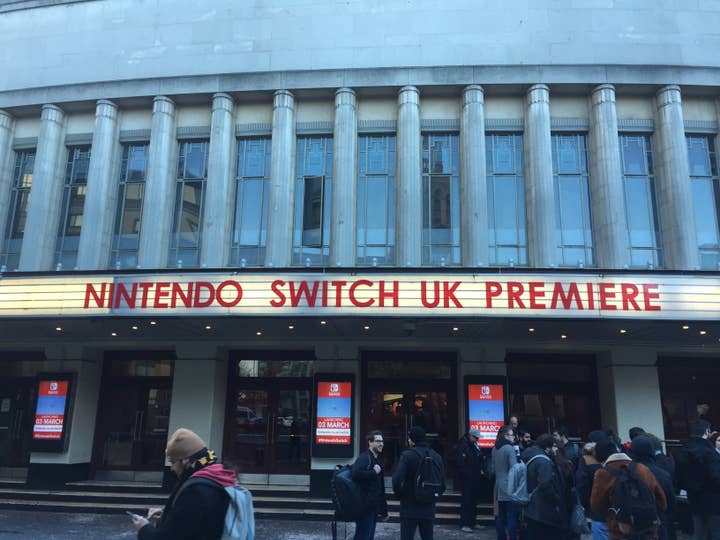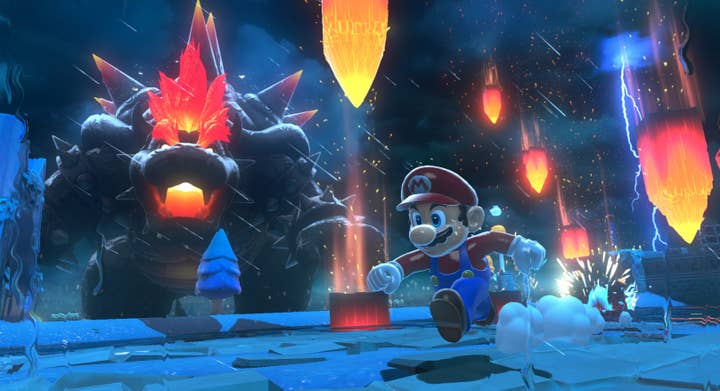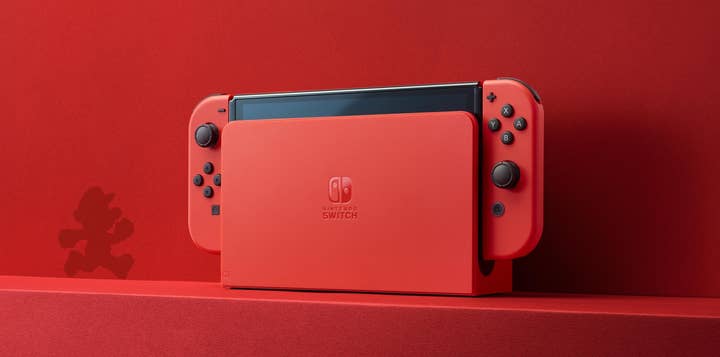How can Nintendo Switch 2 surpass its predecessor? | Opinion
We look at how the platform holder can buck the trend and deliver a sequel console that goes bigger
We all thought Nintendo Switch would be a disaster.
I've told this story before, but I enjoy telling it. Nintendo fully revealed the console almost exactly seven years ago. It held an event at Hammersmith in London to showcase the product to media, retail and assorted industry people and celebrities. A group of us convened in a pub afterwards and the view was unanimous: this might be Nintendo's last console.
There was reasoning behind this analysis. Nintendo's previous machine, the Wii U, was a flop. As a home console, Switch didn't seem to offer anything over what the PS4 and Xbox One could do. As a handheld, it was more compelling, but handheld gaming appeared to be in terminal decline. 3DS sales were respectable, but mostly in Japan and it sold half what its predecessor managed. Meanwhile, PlayStation Vita had lost all momentum. The belief was that mobile gaming had killed the portable games machine, and Nintendo's own push into smartphone games was further proof of that.
What's more, we felt the console, the games and accessories were priced too highly, and the launch line-up was weak. The only day one game of note was The Legend of Zelda: Breath of the Wild, which looked fantastic, but Zelda wasn't a huge seller and the game was also coming to Wii U.
No, this wasn't looking good.
We were wrong, of course. But I think I speak for most of us when I say that we all were. Shortly after the console came out and did well, Nintendo started talking optimistically of Switch maybe matching the Wii's 100m lifetime sales… it currently sits on over 130 million.
Going back to that pub conversation, every one of us thought Switch was doomed, but every one of us had also pre-ordered it. The games looked great, and as media types who were running around the world covering video games, the idea of a console we could take with us… well, that was the dream.

What we hadn't grasped was that this flexibility also appealed to everyone else, too. In fact, it had long been the trend in entertainment. We weren't just watching shows on TV anymore, but on our tablets and phones. Analysing Switch as a handheld or a home console missed the point; it was both and more than the sum of its parts. If PlayStation and Xbox are cinema – a high-end experience tied to a single location – Switch was Netflix, not as technically impressive but considerably better suited to our lifestyles.
It also did something Nintendo hasn't always been successful at, and that's appeal to a hardcore gaming crowd alongside the family demographic. For core users, Switch was a very strong handheld games device. For families, it was a console that could be played individually or together in most scenarios – in the living room, on car journeys, in the restaurant, etc.
The product was the right one, but all of that would have been irrelevant if Nintendo hadn't nailed the software. And it did. It turns out launching with one big game is perfectly fine if that game happens to be one of the greatest of all time. And Nintendo's strategy of releasing a new game every month – a cadence it has largely maintained throughout the Switch's entire lifecycle – turned out to be effective at maintaining momentum and engagement with the system.
This was a vintage generation for Nintendo. The firm delivered some of its best work, with top rated sequels based on Zelda, Mario, Pokémon, Smash Bros, Mario Kart, Splatoon, Animal Crossing, Luigi's Mansion, Metroid, Fire Emblem and so on. Outside of perhaps Donkey Kong, almost every active Nintendo franchise has grown over the last seven years.
It wasn't an entirely flawless seven years. Its effort with the Nintendo Labo series of educational products failed to find an audience. Most of its smartphone releases have struggled. And the Joy-Con controllers have had a high failure rate with the analogue stick drift, which has frustrated consumers.
Nintendo is moving towards its next console from a position of strength
Yet overall, Nintendo is moving towards its next console from a position of strength. The question is: what is the company planning to ensure Switch 2 matches or even surpasses its predecessor?
Nintendo struggles when it comes to transitioning between hardware. Nobody is expecting a Wii U-style collapse this time around, but even outside of that extreme example, Nintendo has always found diminishing returns with its follow-ups. The SNES didn't outsell the NES, the N64 was bigger than GameCube, Wii was a magnitude bigger than Wii U. Even in the handheld space, the GBA and 3DS fell short of what came before.
Things are different this time around. Switch continues to sell well, and its games are delivering record numbers even at this late stage, which is not something you could say of the N64, GameCube or even Wii. Nintendo has some positive momentum heading into the next generation. However, the Switch did have some advantages that its successor may not have.
I won't dwell too much on the first advantage, because it's not one Nintendo (or anyone) will want to see again, and that's the COVID-19 pandemic. The lockdowns had a big sales impact on Nintendo Switch around mid-way through the generation, causing an upswing in momentum and engagement. This isn't a situation anyone will hope to see again.
The second advantage comes from poor performance of Wii U. Nintendo had a decent slate of previously developed games, including big budget Mario titles, that nobody (figuratively speaking) bought. In order to maintain that monthly cadence of exclusive games on Switch, Nintendo often dipped into its Wii U catalogue and released updated versions. Some of the Switch's best-selling titles, such as Mario Kart 8: Deluxe and Super Mario 3D World + Bowser's Fury, were originally Wii U games. Nintendo won't have that luxury with Switch 2

And finally, Nintendo has some slight competition this time around, at least in the core gaming space. Products and services like Steam Deck and Xbox Game Streaming may not be direct competitors, but they are also about adding flexibility to PC and console gaming.
So what can we expect from Switch 2? Predicting Nintendo's strategy is a fool's game at the best of times. Yet there have been some hints on what Nintendo might do with its next console.
First, there's the expansion of its internal development capacity. It's launching a new development centre and ramping up recruitment to react to the fact that its games are taking longer to make and requiring bigger teams to make them.
I also know that Nintendo is actively meeting with independent developers to find new partners. Some of that is around publishing indie games, which Nintendo does from time-to-time, but it's also seeking studios that could work on some of its IP. Nintendo regularly works with third-party teams, including Bandai Namco, Team Ninja, Platinum Games, MercurySteam, WayForward and Grezzo. But the company is looking to add to that roster, and I know of three studios that are deep in conversation around making games based on Nintendo brands.
But for me, the biggest opportunity for Nintendo remains digital. Nintendo's digital business, which encompasses everything from its Mario Kart DLC to the Nintendo Switch Online subscription service to direct game sales via the eShop, grew substantially over the Switch generation. Yet compared to its rivals, the company remains more than a few steps behind in this space.
Nintendo is actively meeting with independent developers to find new partners
It will want to tread carefully considering its strong relationship with retail, but the company has talked about how the Nintendo Account, which connects users across mobile, its website, its online store and its console, will be the connective tissue between the current Switch and whatever comes next.
That's a start, but there are clear ways in which Nintendo can develop and improve its Switch Online service and the eShop store. I would also posit that a good way Nintendo can innovate with Switch 2 without drastically changing the hardware would be through some digital services. I was surprised Nintendo didn't build upon the Street Pass and Miiverse social features that proved popular on 3DS and Wii U, for example.
Considering Nintendo's history with motion controls, tablet controls, dual screens and 3D screens, some people might expect the company to offer something novel with its next device. And how successful that novelty is will be determined by how many units it sells.
Yet in this engagement era, Nintendo's success will be about the strength of its IP, how many people are playing its games, attending its theme parks, watching its movies and interacting with its brands. This is something that can be achieved digitally, without the need for some unconventional hardware.
Switch 2 has a hell of a legacy to live up to. But in this modern era, where the lines between generations are blurred, it's a case of building on what came before, and not pressing the reset button.

